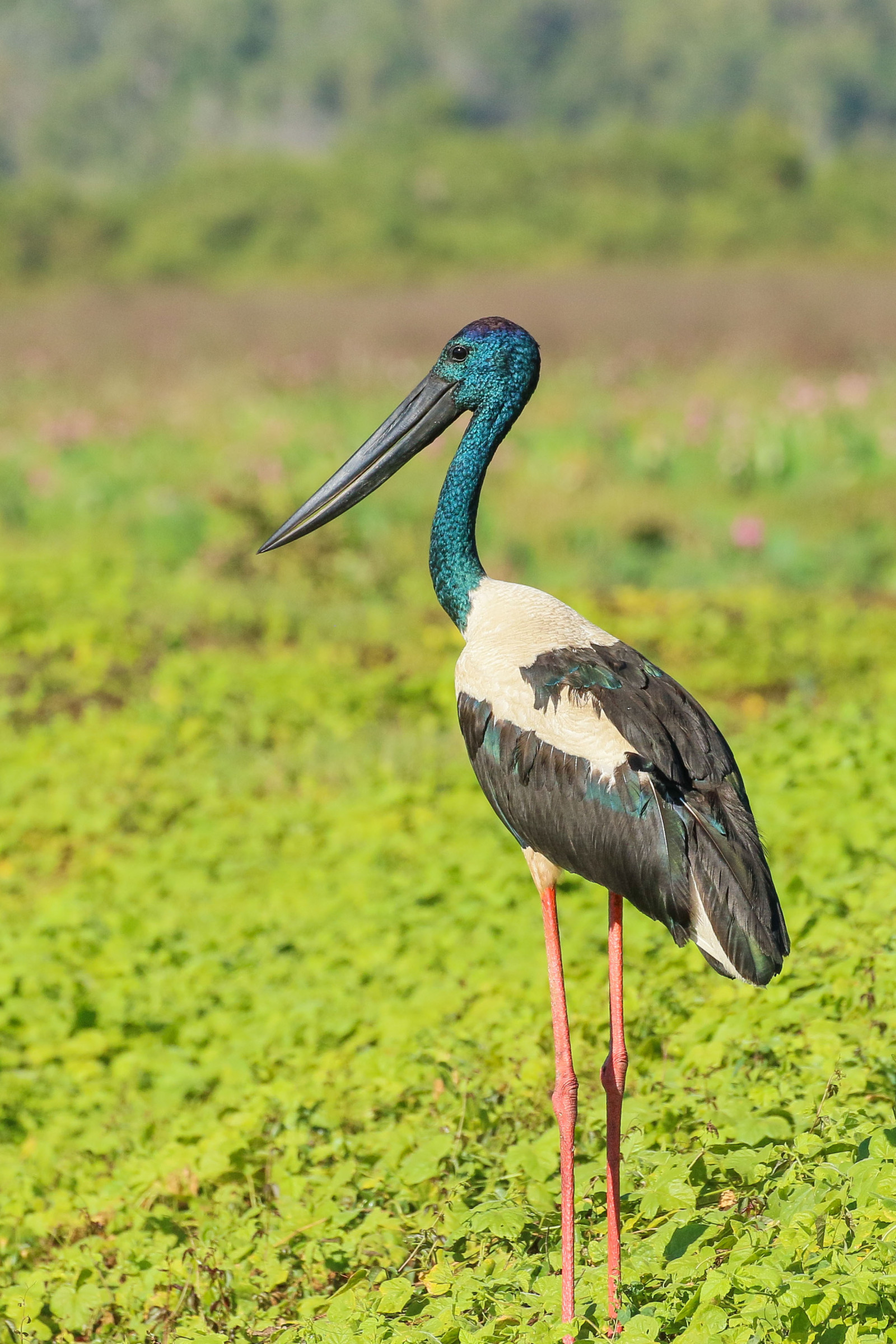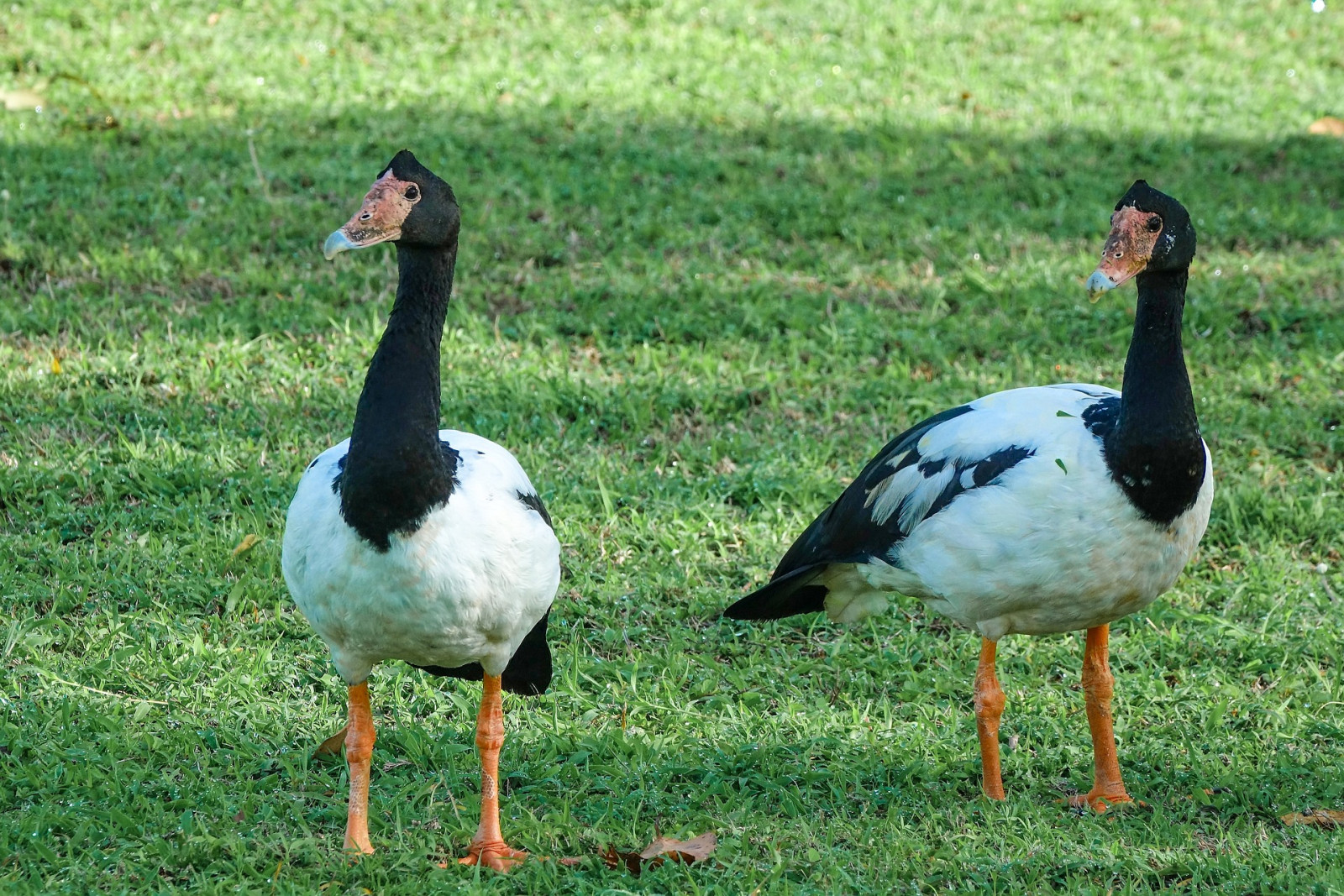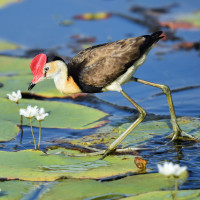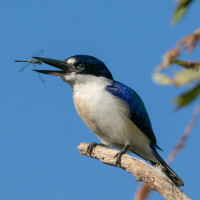Descrizione
Jabiru Park - Fearnley Hide is situated on shore of the SW extent of Lake Macdonald with melaleuca, wet sclerophyll woodlands and rural acerages bordering. Excellent range of wetland, woodland & grassland birds possible. Species range depends on lake levels and season and has included several local rarities such as Australian Painted-Snipe, Green Pygmy-Goose, Musk Duck and Bar-breasted Honeyeater. More frequently seen birds include Black-necked Stork, Oriental Cuckoo, Latham's Snipe, Sharp-tailed Sandpiper, Glossy Ibis, Cotton Pygmy-goose, Dusky Honeyeater & Whiskered Tern while common residents include Comb-crested Jacana, Great Cormorant, Forest Kingfisher, Restless Flycatcher and Tawny Grassbird.
Dettagli
Accesso
Parking at end of Grange Rd off Cooroy Noosa Rd about 6 km east of Cooroy and the Bruce Highway. No facilities other than covered picnic table at the car park and enclosed hide at end of track from the car park. Car park includes access for launching kayaks or other small water craft. Click on the P in the map for directions or coordinates.





